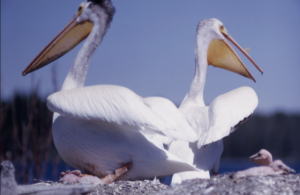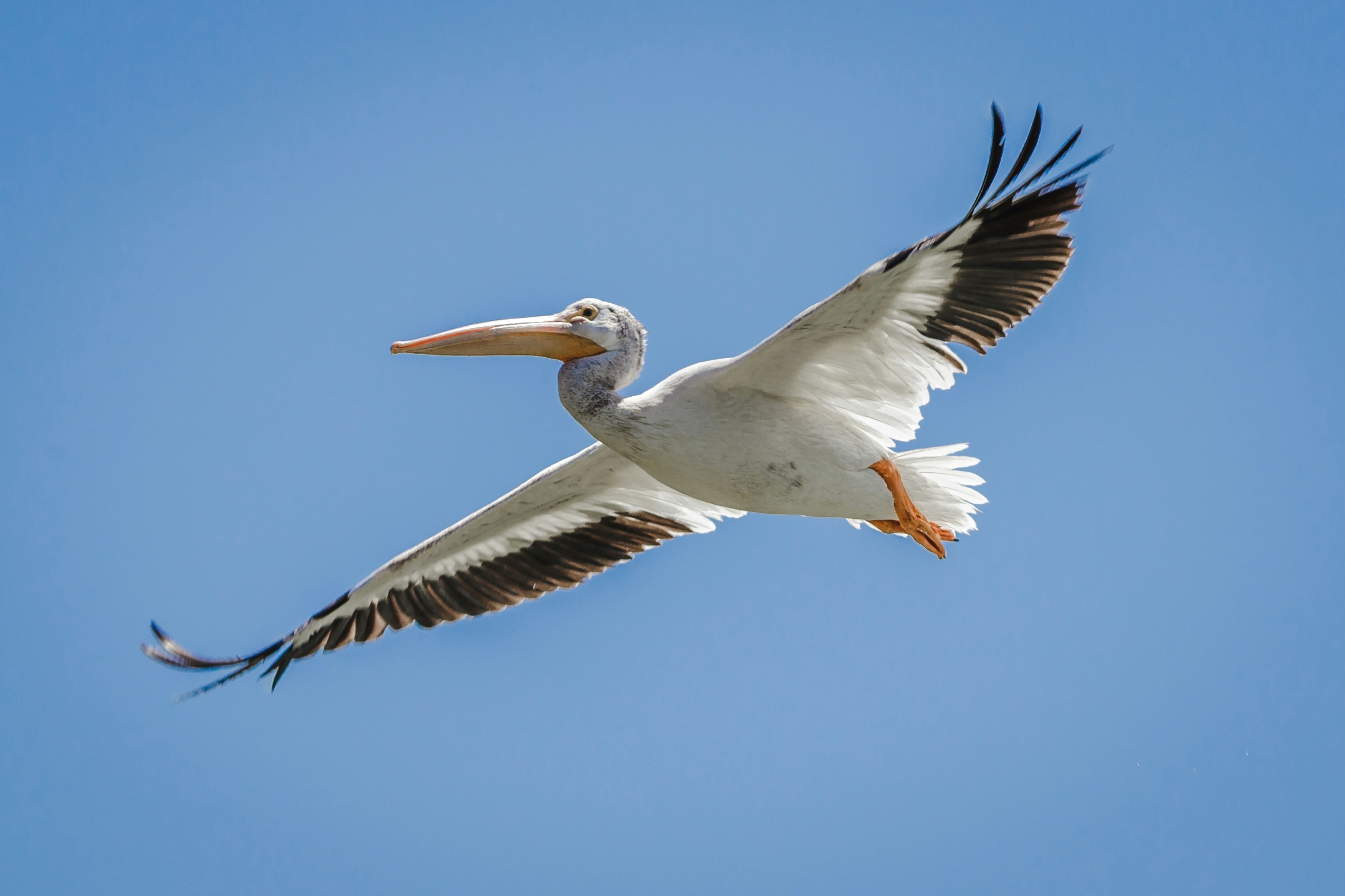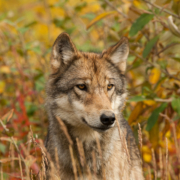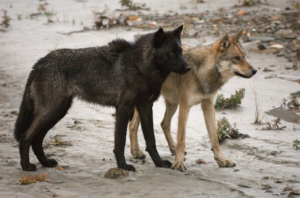Killing a predatory animal for humans to have the opportunity to kill its prey.

No, we are not talking about terrestrial large carnivores. This is about the majestic American White Pelican. The pelican is federal protected under the Migratory Bird Treaty Act of 1918 . Thats right! More than a century ago when utilitarianism was rampant, Congress recognized the needs of migrating birds and reined in the diabolical clear cutting of many natives species. And yes, we digress a little by posting about pelicans, but it is a fact that pelicans are another example of the contributions of a large predatory species that serve the ecological needs of maintaining a healthy landscape.
Ironically, their feeding behavior is similar to the teamwork of wolves.
They also forage cooperatively: groups of birds dip their bills and flap their wings to drive fish toward shore, corralling prey for highly efficient, synchronized, bill-dipping feasts Source
The notion that killing one species to protect another is endemic and pervasive, and has recently been challenged by sound scientific research. In this case, it is not even the protection of prey, but simply for the satisfaction of humans.to fish in a private water resource
Here is just a little information about what those ecological services are.
- They used to be shot for sport or because it was thought that they competed with humans for fish—though they are now understood to take fish of little commercial value. Source
- As top predators in aquatic ecosystems, American White Pelicans help to regulate fish populations, contributing to a balanced and healthy ecosystem. The presence of American White Pelicans can serve as an indicator of water quality and ecosystem health, as these birds rely on clean water and abundant fish populations for their survival.
- American White Pelicans play a role in nutrient cycling within their habitats, as their guano (droppings) provides a rich source of nutrients that support plant growth and the overall productivity of the ecosystem. By attracting birdwatchers and nature enthusiasts, American White Pelicans can contribute to local economies through ecotourism, fostering an appreciation for the natural world and promoting conservation efforts.
- American White Pelicans can also serve as a flagship species for conservation, drawing public attention to the need for habitat protection and restoration efforts in aquatic ecosystems. Source
Predation is a fact of life in nature. It is vital to the health of prey species and the environment. We must work hard to nullify the old cultural values that seek to slaughter predators whether they are fur, feathers, aquatic species, or invertebrates.



